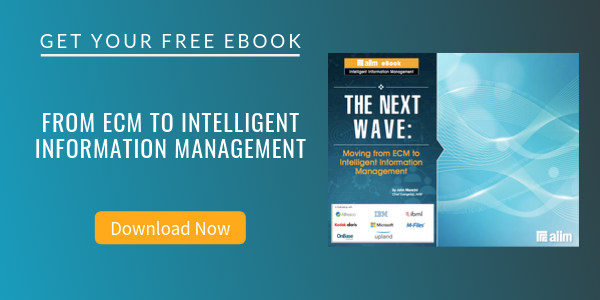
What is Metadata and Why is it Important?
Information needs context, and we need to provide that context in a way that doesn't burden users but instead supports them. This means we need to take full advantage of recognition and analytics technologies to streamline and automate how we develop that context.
One such tool is Metadata. Metadata offers significant benefits in terms of understanding information in new ways and in being able to leverage that intelligence to drive innovation and the customer experience.
What is Metadata?
There is no one definition of "Metadata" that is international and universally agreed upon – rather, there are many similar definitions or descriptions which mostly cover the same points. You should adopt the one most suitable and relevant to the context of your information management activities and the organization in which you work.
The ISO Records Management Standard 15489 provides this simple definition:
"Data describing content, content, and structure of records and their management through time."
The US Department of Defense has a definition of metadata in its DoD 5015.2 standard, which is also similar to the ISO standards, namely:
"Data describing stored data: that is, data describing the structure, data elements, interrelationships, and other characteristics of electronic records."
This illustrates several of the other purposes served by metadata in Electronic Records Management (ERM) systems.
Finally, NISO, the US National Information Standards Organization, defines Metadata as:
"Structured information that describes, explains, locates, or otherwise makes it easier to retrieve, use, or manage an information resource."
Notice the similarities and differences in these definitions and think about how they relate to the context of your own work. Metadata is often called data about data or information about information.

What is the Business Value of Metadata?
The primary value of Metadata comes with how it is aligned to and supports specific business goals and objectives. Here are a few of the ways that Metadata brings value to the business:
- Classification - Metadata plays a key role in classification, or organizing your content Retention - Metadata can be used to track things like the dates associated with a document's associated record schedule.
- Information Security - Metadata can be used to flag a security setting, validating access and edit rights, and thus controlling distribution.
- Customer Experience - Metadata can also be used as a way to capture users' rating of content, for example, indicating that content is "valuable or "useless" or even "dated."
- Information "Findability" - Metadata is extremely valuable as a search and retrieval enhancing mechanism by enabling users to target a query on a certain field, such as author, subject, date, etc.
Metadata is an important part of the content capture, creation, and organization phases of the content lifecycle. If associated Metadata is not captured at the same time that the content is, you will quickly create a collection of content that is difficult to manage, find and retrieve.
In short, Metadata is one of the foundations for managing information efficiently and effectively.



